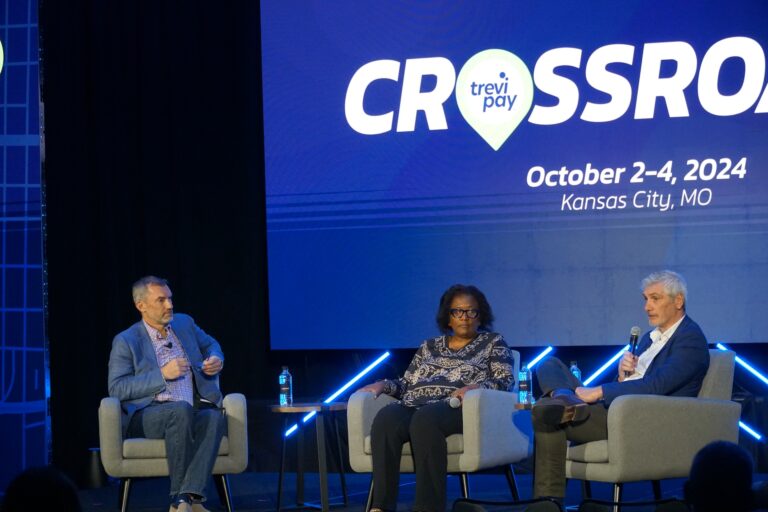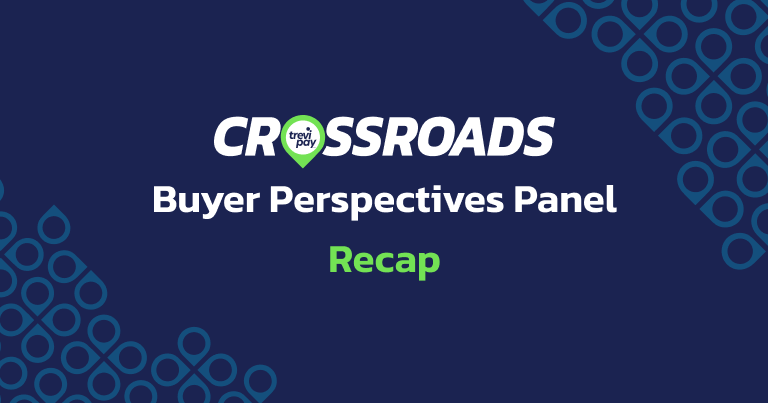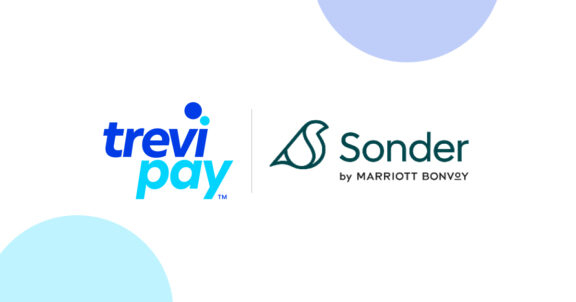B2B buyers, much like their B2C counterparts, are driving higher expectations when it comes to the purchasing experience. At TreviPay’s Crossroads Conference, the “Buyer Perspectives” panel explored the shifts in B2B buying behaviors, emphasizing the importance of value, relationships and technology in today’s marketplace. Moderated by Piers Gorman, the discussion featured insights from Rosilyn Richey of Viking Cruises and James Norfor of b2buy.
Moving Beyond Price: The Shift to Strategic Partnerships
A major theme of the panel was the transition from price-driven decisions to value-based procurement. As Rosilyn Richey of Viking Cruises pointed out, “Twenty years ago, purchasing decisions were mostly about price. Today, it’s much more about the value a supplier can bring.” Richey explained that as suppliers have become more differentiated in their offerings, buyers are now evaluating other factors, like service quality, customer experience and how a supplier’s product or service aligns with their brand.
James Norfor of b2buy agreed, stating that businesses are increasingly seeking strategic partnerships with their suppliers. “Companies are looking for more than just the lowest price. They’re considering total cost of ownership, product performance and the quality of the relationship with the supplier,” Norfor explained. This shift reflects a broader movement towards collaborative relationships, where suppliers are seen as partners who can drive innovation and long-term value.
Strategic Value is Key, Not Just Size
One important insight from the panel was that being a strategic partner isn’t just about size. Small or niche suppliers can still be critical to a buyer’s operations if they offer specialized products or services. Richey noted, “Strategic doesn’t always mean large. Sometimes, a small supplier fills a niche that’s critical for us.”
This perspective is particularly relevant for businesses in specialized industries, where certain suppliers play a crucial role in ensuring operational success. The key, according to both Richey and Norfor, is for suppliers to understand their place in a buyer’s ecosystem and tailor their approach accordingly. Whether they are providing a commodity product or a niche service, suppliers must align their offerings with the buyer’s business goals to become indispensable.
Building Relationships Beyond Procurement
Both panelists highlighted the importance of building relationships that go beyond the procurement department. “The best relationships extend beyond procurement to involve multiple departments within the company,” Richey said. For example, Viking Cruises works closely with their airline suppliers to align their strategic plans, sharing confidential information that allows both parties to benefit from new opportunities.
Norfor added that suppliers who establish relationships across the entire business can often gain deeper insights into the company’s needs. “Some of the most valuable insights I’ve gained about my own company have come from conversations with suppliers,” he explained. By working closely with various departments, suppliers can better position themselves as strategic partners who understand the full scope of the business.

Technology and Automation: The Future of Procurement
Looking ahead, the panelists agreed that technology and automation will play a significant role in shaping the future of procurement. Norfor emphasized that as more procurement processes become automated, the role of procurement teams will shift toward relationship management and strategy. “AI and big data are transforming procurement, but human relationships and strategic thinking will remain essential,” he said.
Richey also noted that technology enables suppliers and buyers to share data more efficiently, providing valuable insights that can improve decision-making. “Big data and AI allow for greater transparency and better collaboration between buyers and suppliers. This data exchange helps us make more informed decisions and fosters stronger partnerships,” she said.
The Importance of Communication and Transparency
The panel also discussed how buyers expect clear, transparent communication from their suppliers, especially when something goes wrong. “When issues arise, communication is key,” Norfor said. “It’s important for suppliers to be proactive in identifying problems and working with the buyer to find a solution. Most suppliers are willing to go the extra mile when they have a strong relationship with the buyer.”
Richey echoed this sentiment, adding that rapid communication is especially critical in time-sensitive industries like travel. “For us, a delayed flight could mean a passenger misses their cruise. We rely on open communication with our airline partners to quickly address issues and make alternate arrangements,” she explained.
Key Takeaways
- Value Over Price: Today’s buyers prioritize value, quality and service over the lowest price. Suppliers need to demonstrate their strategic value to become long-term partners.
- Relationships Matter: Building relationships across multiple departments within a buyer’s organization can provide deeper insights and strengthen partnerships.
- Technology and Automation: As procurement processes become more automated, the focus will shift to managing relationships and driving strategic innovation.
- Transparency is Critical: Clear, proactive communication is essential for resolving issues and maintaining trust between buyers and suppliers
The panel underscored the evolving nature of B2B buying, where relationships, value and technology play a more significant role than ever. As businesses continue to adapt to this changing landscape, suppliers who can offer strategic partnerships and deliver on value will be the ones to thrive.
Watch the recording of the Buyer Perspectives Panel and all the other recordings of the first day of Crossroads 2024






